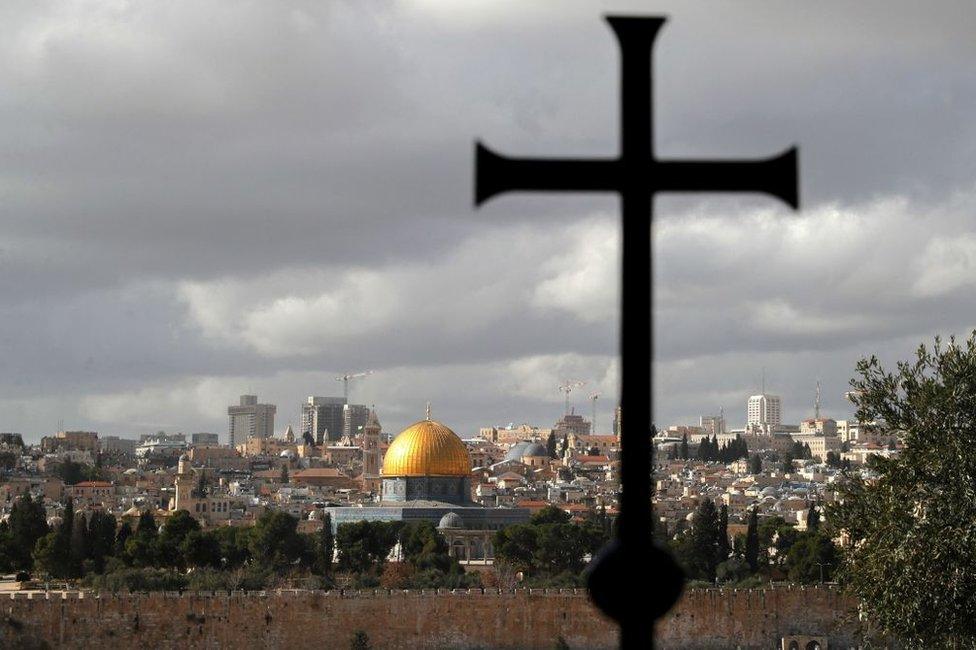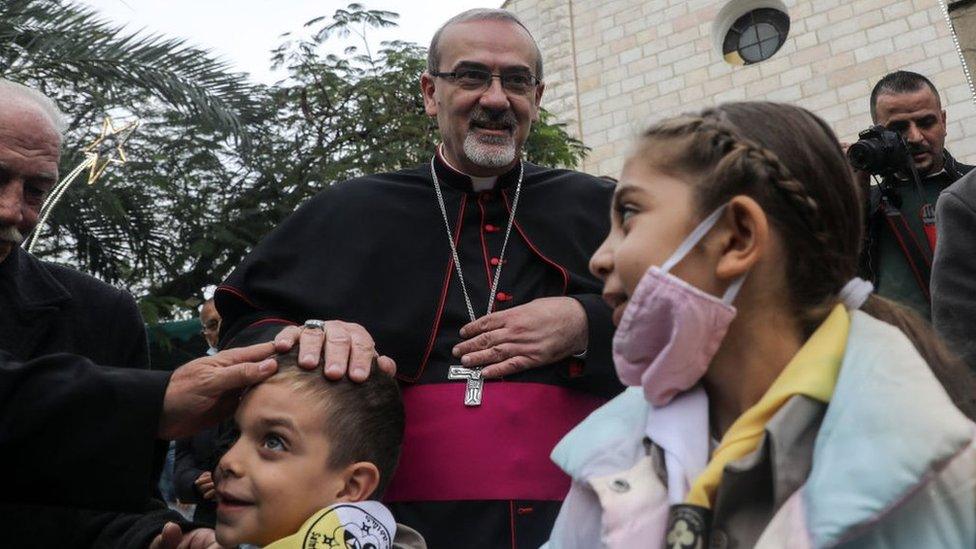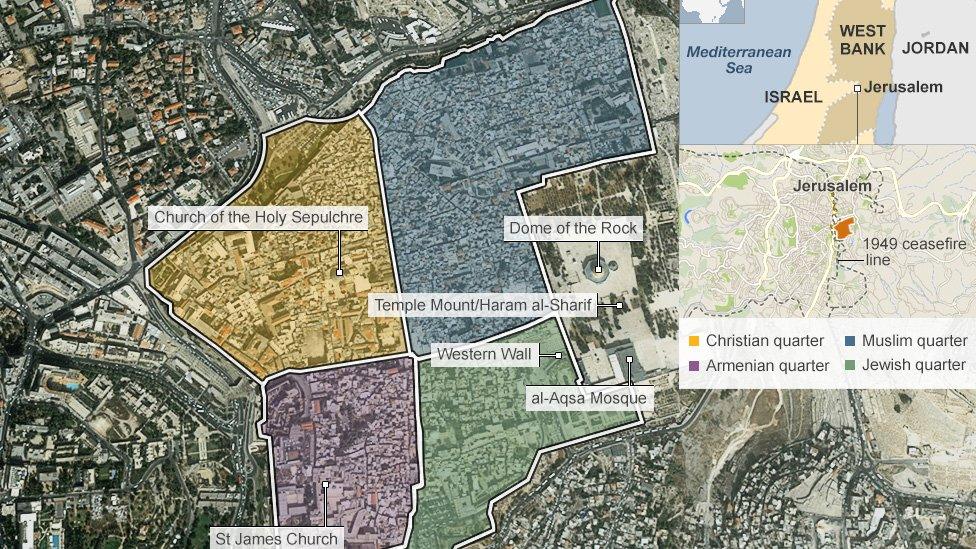Israel rejects 'alarm call' by Christian leaders in Jerusalem
- Published

There are believed to be fewer than 2,000 Christians left in the Old City of Jerusalem
Israel has rejected allegations from Church leaders that unnamed "fringe radical groups" are trying to drive Christians out of the Holy Land.
The patriarchs and heads of churches in Jerusalem said authorities had failed to curb assaults against Christians and desecration of their sites.
The Archbishop of Canterbury said the statement was an "unprecedented and urgent alarm call".
But the Israeli government called it baseless and distorted.
While the overall number of Palestinian Arab Christians in Israel, the occupied West Bank and the Gaza Strip is growing, the community has been in decline for years as a proportion of the population.
Christians now make up less than 2% of the population and fewer than 2,000 are believed to be left in the Old City of Jerusalem.
Greek Orthodox Patriarch Theophilus III explains why Jerusalem's Church of the Holy Sepulchre is the holiest place in Christianity
The Church leaders in Jerusalem warned in their statement, external that since 2012 there had been "countless incidents of physical and verbal assaults against priests and other clergy, attacks on Christian churches, with holy sites regularly vandalised and desecrated, and ongoing intimidation of local Christians who simply seek to worship freely and go about their daily lives".
"These tactics are being used by such radical groups in a systematic attempt to drive the Christian community out of Jerusalem and other parts of the Holy Land."
They acknowledged the Israeli government's commitment to protect the community, but said it was being "betrayed by the failure of local politicians, officials and law enforcement agencies".
Allow X content?
This article contains content provided by X. We ask for your permission before anything is loaded, as they may be using cookies and other technologies. You may want to read X’s cookie policy, external and privacy policy, external before accepting. To view this content choose ‘accept and continue’.

The Archbishop of Canterbury and spiritual leader of the 85 million-strong Anglican global communion, Justin Welby, and the Anglican Archbishop in Jerusalem, Hosam Naoum, backed the statement in an article published by the Sunday Times, external that warned of "a historic tragedy unfolding in real time".
They praised the democratic and religious freedoms that Christians enjoyed in Israel, but said "the escalation of physical and verbal abuse of Christian clergy, and vandalism of holy sites by fringe, radical groups, are a concerted attempt to intimidate and drive them away".
They added that Israeli settler communities and restrictions on movement in the West Bank "deepened the isolation of Christian villages and curtailed economic and social possibilities".
"It does not have to be this way. This trend can be reversed - but action must be taken fast. We encourage governments and authorities in the region to listen to church leaders in their midst."

The Latin Patriarch of Jerusalem Pierbattista Pizzaballa visited Gaza City last week
In a statement released on Monday night, the Israeli government made no reference to the Archbishop of Canterbury's article, but said the Jerusalem Church leaders' comments were baseless and "distort the reality of the Christian community in Israel".
"Religious leaders have a critical role to play in education for tolerance and coexistence, and Church leaders should be expected to understand their responsibility and the consequences of what they have published, which could lead to violence and bring harm to innocent people," it warned.
The statement also accused them of an "infuriating" silence over the plight of many Christian communities elsewhere in the Middle East.
There was no immediate response from the Jerusalem Church leaders, but a spokesperson for the Archbishop of Canterbury said he had "spoken out repeatedly about the persecution of Christians across the Middle East and other parts of the world".
- Published30 October 2014
